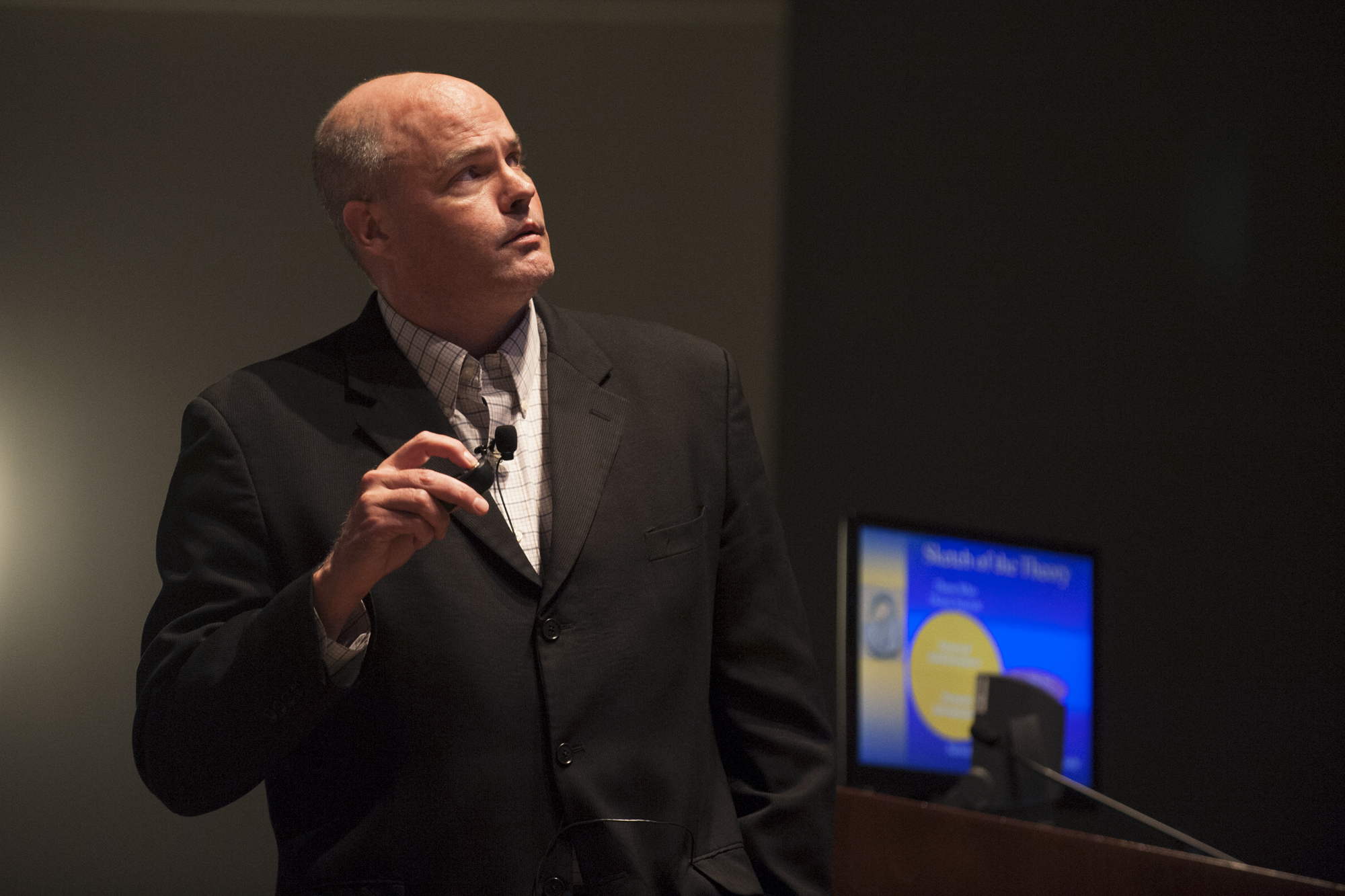Contact: Leah Barbour

Photo by: Beth Wynn
STARKVILLE, Miss.--By better understanding suicidal states of mind, friends and family may identify people at highest risk and help them, an internationally recognized suicide-prevention expert said Monday [Feb. 3] at Mississippi State University.
Licensed clinical psychologist Thomas Joiner, the Robert O. Lawton Distinguished Professor of Psychology at Florida State University, discussed "Why People Die by Suicide" in McCool Hall's Taylor Auditorium.
He explained his theory to a packed audience, which included students, faculty and members of the general public. Joiner said three factors occur in tandem for the individuals who choose death by suicide: perceived burdensomeness, thwarted belongingness and acquired capacity for suicide.
"The 'perceived burdensomeness' mindset occurs when a person thinks their death will be worth more than their life. The 'thwarted belongingness' is feeling socially alienated, disconnected and lonely," he said. "When the individual feels those two states of mind simultaneously, then they develop a desire for suicide.
"This is a key point -- that desire is not sufficient to culminate in suicide," Joiner explained. "You've got to have this other aspect, too: the 'acquired capacity for suicide' -- fearlessness of bodily harm. When desire and fearlessness concur in the same individual, that's when you see death by suicide."
Many people who seem unafraid of bodily harm, including thrill seekers, military service personnel and police, never attempt suicide because they have no desire to do so, Joiner said. Also, many who think about suicide never act on those ideas.
Joiner said a desire for suicide must accompany fearlessness of death, but people who have attempted suicide and survived consistently express the regret and fear they felt during the attempt.
While changing the mindset of fearlessness about harming one's body can be difficult, efforts to impact a person's perception of burdensomeness and/or a sense of thwarted belongingness are realistic ways to help a person who is feeling lonely and disconnected, Joiner said.
"Increase belonging and community togetherness via clubs, religious institutions or any kind of social organization that brings people together or increases sense of purpose and mission -- the opposite of loneliness," Joiner said.
He also emphasized that any person who might feel suicidal or who knows someone that could be in that state of mind can call the National Suicide Prevention Hotline at 800-273-TALK (8255), where trained counselors are ready 24 hours a day, seven days a week to listen and talk.
Joiner's campus address, part of MSU Connection project, was sponsored by the College of Arts and Sciences and its psychology department. MSU Connection is funded by a Garrett Lee Smith Campus Suicide Prevention Grant from the U.S. Department of Health and Human Services' Substance Abuse and Mental Health Services Administration.